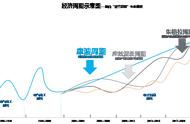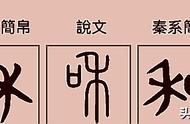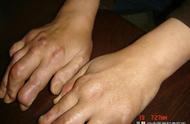21、 This pretty nurse told the lovely girl it was bad manners to throw the rubbish everywhere and she should put them into the dustbin.
那个漂亮的护士告诉那个可爱的女孩,随处乱扔垃圾是不文明的举止,她应该扔在垃圾桶里。
manners [ˈmænəz] manner的复数,礼貌;虽然是复数名词,但属于抽象名词,前面需用much, little修饰。good manners有礼貌, bad manners没礼貌。
manner: 表示举止、方式、习俗、礼貌。表示待人接物的态度。manners: 表示“礼貌”
rubbish [ˈrʌbɪʃ] n. 垃圾,废弃物
在英国英语中,垃圾为rubbish,街上的垃圾桶为dustbin,清除垃圾的工人叫dustman。在北美英语中,垃圾为garbage和trash,街上的垃圾桶为garbage/trash can,清除垃圾的工人叫garbage man/collector。garbage多指废弃的食物和其他湿物质,而trash则指废弃的纸、硬纸板和干物质。
should [ʃʊd , ʃəd] modal. 应该,应当 常用于纠正别人
22、When the engineer found the machine stopped working , he stopped to check what the matter with it was.
当工程师发现机器停止工作时,他停下来查看出了什么错。
engineer [ˌendʒɪˈnɪə(r)] n. 工程师,技师
stop doing sth 是“停止做某事”,其中doing是stop的宾语,是要停止的动作;
stop to do sth 是“停下来开始做某事”,to do是stop的状语,表示目的,是要开始做的事情。
23、The lady's husband raised his head and told me that yesterday's highest temperature had risen to 36 degrees, but tomorrow it would rise by 3 degrees.
这位女士的丈夫抬起头并告诉我昨天最高气温升到36度,但是今天还会升3度。
raise [reɪz] vt. 提升,举起, 提起。
rise [raɪz] vi. 上升,升起,提高。
辨析: raise 表示“某人把某物提起、举起”;rise 表示“某人或某物自己升起”。都可以表示数量、价值、地位、等的提高,上升,rise在英式英语中表示薪水的增加,美式英语用raise。rise表示“复活”常与from搭配。raise表示“养育,饲养”。表示温度上升:raise the temperature to...degrees / rise by ... degrees
yesterday's highest:形容词最高级前,如果有了指示代词,物主代词省略定冠词the 。
temperature [ˈtemprətʃə(r)] n.气温,温度,体温
24、 It was very loud outside the classroom so our English teacher required all the students to read the new text aloud.
教室外面很吵,所以我们的英语老师要求所有的学生大声朗读新课文。
loud: “大声地”既可以做副词也可以做形容词,指声音大,传播距离较远,有比较级和最高级。
aloud: 副词,“,出声的,大声地”无词形变化,主要是指这个声音能让人听到,所以常和读书、说话连用。
作“大声地”含义时,常与cry, shout连用。
loudly: 副词,“大声地、吵闹地”可指各种声音,强调声音高,喧闹,不悦耳。
require [rɪˈkwaɪə(r)] vt. 要求; 需要; 依靠; require sb to do sth. 要求某人做某事,
常用被动态:sb is required to do sth.
25、The beautiful journalist received the rich man's expensive gift; however , she refused to accept it because she didn't like him.
那个漂亮的记者收到了这富人送的昂贵礼物,但是她拒绝接受,因为她不喜欢他。
journalist [ˈdʒɜːnəlɪst] n. 新闻工作者,新闻记者。 reporter和journalist的区别,最常见的说法是:reporter指的是广播电视记者,供职于电台或电视台;而journalist则用来指文字记者,在报社杂志社工作。还有一种说法,认为journalist是用来指级别较高、比较有成就的记者,而 reporter则用来指普通记者。
expensive [ɪkˈspensɪv] adj. 昂贵的,价格高的
refuse [rɪˈfjuːz] v. 拒绝; 回绝; refuse to do sth
receive: 是指客观上的收到这种行为和动作,并不涉及主观意愿。表示“受到教育、接待客人”时只用receive
accept:是指主观上自愿主动去接受、接纳。表示“接受某条件”时只能用accept。
26、 — My desk mate has made so great progress in French recently that he can speak French fluently now. —我同桌最近在法语上取得很大进步,现在法语说得很流利了。
— So he has , and so have you . Congratulations on winning the first prize in the French contest.
—是的,你也是。祝贺你赢得法语竞赛第一名。
make progress in (doing) sth. 在……方面取得进步
fluently [ˈflu(ː)əntli] adv. 流利地; 流畅地
Congratulations: congratulation to sb:祝贺某人。congratulation sb on sth: 因某事祝贺某人。
so引导的倒装句
1、So 主语 助动词/情态动词/be动词,表示“的确是这样”,情况属实。前后两句主语一致;
2、So be动词/情态动词/助动词 主语:表示“某人或某事物情况也是如此”,前后主语不一致。只限于肯定句;
3、否定句:把so改为 nor/neither, 其他不变。
27、A duck is lying below a tree, it has laid four eggs but the boy lied that it had laid 3 eggs.
一只鸭子躺在树下,它下了四个蛋,但是那个男孩谎称它只下了3个蛋。
lie (撒谎) →lied → lied → lying
lie(躺,位于)→ lay → lain → lying
lay(下蛋,搁置)→laid → laid → laying
说谎的(lied)人,累(lay)了就躺下, 躺过就下蛋,放置不规则。
动词以-ie结尾时,加-ing,需要变ie为y再加-ing,如:die---dying tie---tying
28、 The old writer lived alone in a small village, but he never felt lonely because he had made friends with the books.
那个年老的作家独自住在一个小村里,但是他从不感到孤单,因为他和书做朋友。
alone [əˈləʊn] adv. 独自 without any other people 独立 without the help of other people or things
adj. 独自的 做表语,没有级的变化
lonely [ˈləʊnli] 孤独的;寂寞的 unhappy because you have no friends or people to talk to
make friends with (与…)交朋友; (和…)建立友谊;
29、Ten passengers are standing beside the door besides you so there are eleven adults in all .
除了你,十个乘客正站在门边,因此一共有11个成年人。
beside [bɪˈsaɪd] 在旁边(或附近) 。 by和beside均表示“在……旁边”,常可换用; near表示“在……附近”,表示的距离比by和beside稍远些; next to表示“紧靠……的旁边”
besides | 除了...之外还有,表示累加关系 | He is interested in tennis besides football. 除了足球,他还对网球感兴趣。 | |
except | 除了,表示从整体中除去 | Everyone is excited except me. 除我以外,每个人都很激动。 | except for放在句首。except一般不用在句首 |
except for | 除了,排除不同类事物,用于对某种情况进行具体细节修正,引出一个与前面的词相反的原因或者事例 | The bus was empty except for an old lady. 公交车上要不是坐了一位老太太就是空的。 | |
but | 除了,只能用在no、none、nobody等词之后 | No one but me passed the exam yesterday. 昨天,除了我以外没别人考及格。 |
in all:总计 at all 全然,一点(用于否定句,条件句等的句末) above all 首先,尤其是 all in all总的来说,总之
30、The monitor expects that besides students, their parents will also attend his birthday party but there are only five of his friends except his class teacher.
班长期盼除了学生,他们的家长也能出席他的生日聚会,但是,除了老师只有5个朋友来了。
monitor [ˈmɒnɪtə(r)] n. 班长;监视器;监控器 vt. 监视;跟踪调查;监听(电话等)
expect [ɪkˈspekt] v. 预料;预期;期待;盼望
attend [əˈtend] v. 出席;参加;
expect
(1)可表⽰“期待,期望”通常为及物动词,不能在其后介词for。如:
我们不能期望⼀夜之间就取得成功。 We should not expect success overnight.
(2)它还可表⽰“预计”“预料”等。如:
I expect that I will be back on Sunday. 我预计星期⽇回来。
(3)expect后接动词时要⽤不定式,不⽤动名词。如:
I didn’t expect to find you here. 我没料到在这⾥碰到你。
(4)其后可接 that 从句,若从句谓语为否定,注意否定的转移。如:
I don’t expect that he has done such a thing. 我预料他不会干出这种事来。
(5)其后可接that 从句,但不接疑问词引导的从句,若遇有疑问词,则要使⽤“疑问词 do you
expect…”这样的句式。如:
你想什么时候离开?
误:Do you expect when you will leave?
误:Do you expect when to leave?
正:When do you expect to leave?















